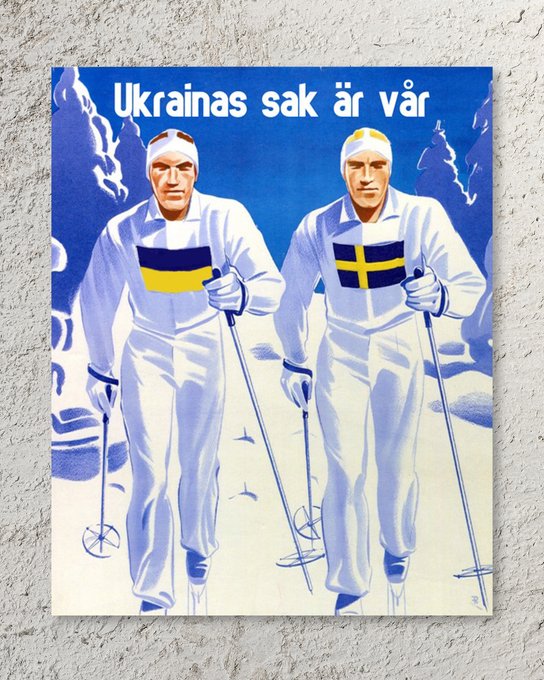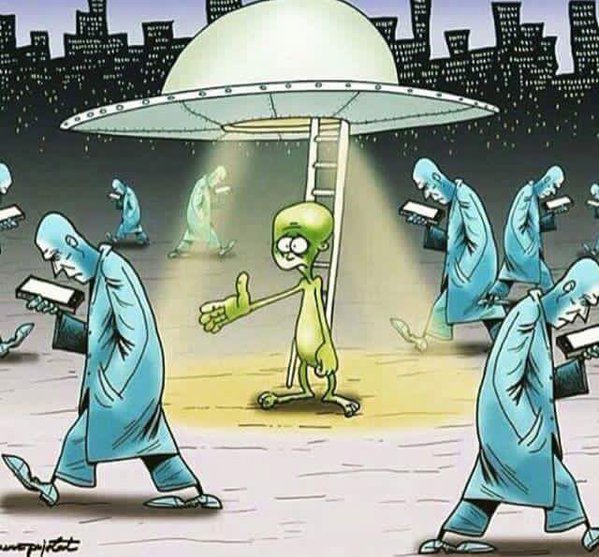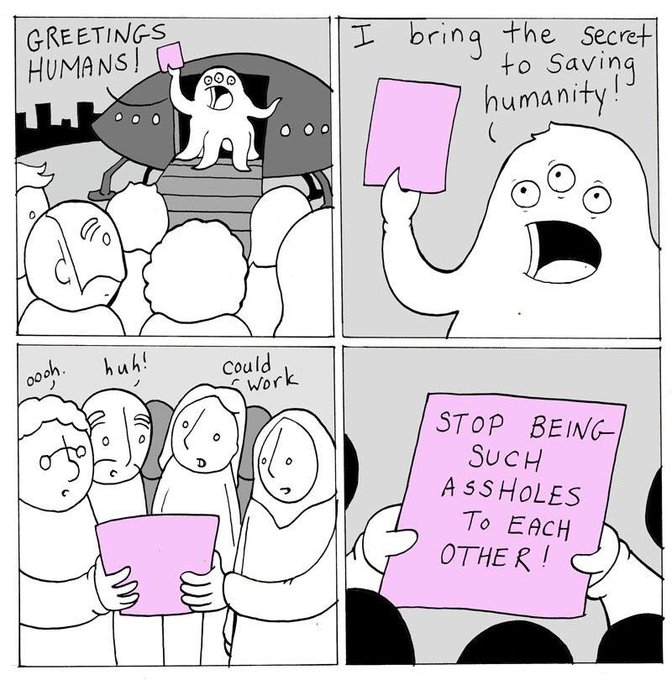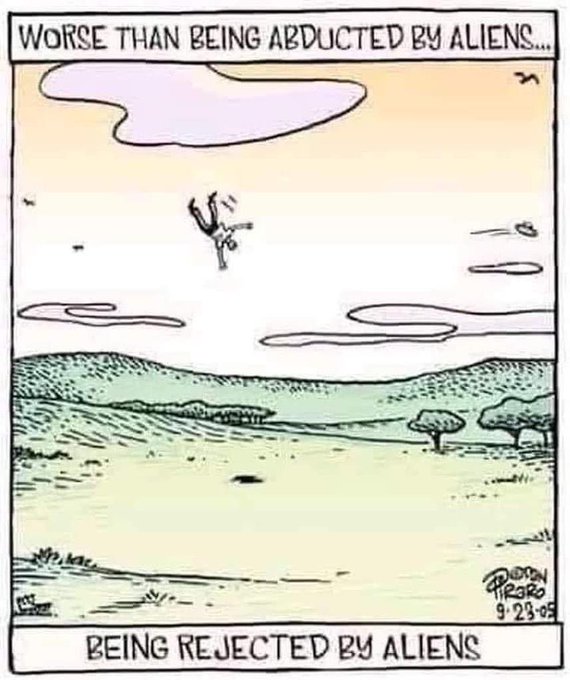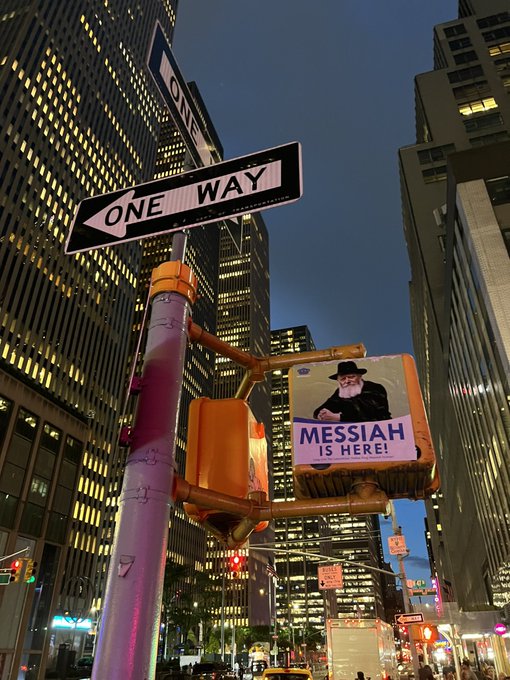I disagree (I think) with many of the points in the content linked above, but it is interesting, in a somewhat disturbing fashion...
The blog to end all blogs. Reviews and comments about all and everything. This blog is NOT affiliated with YouTube, Wikipedia, Bing AI or any commercial vendor! Links don´t imply endorsement. All photos are credit Wikipedia. Many posts and comments are ironic. The blogger is not responsible for comments made by others. The languages used are English and Swedish. Content warning: Essentially everything.
Thursday, June 30, 2022
Wednesday, June 29, 2022
I huvudet på en 24-åring
Vad bra att någon tar tag i de *verkligt* viktiga frågorna en sommar som denna! Allvarligt talat, den här nyliberala skitungen är ju som en parodi på ungdomsförbundspolitik...
Tvärvändningen
Länk för protokollets skull. (Själva avtalet har ännu så länge bara publicerats på engelska.)
"Vänstern rasar efter S kurd-svek, hotar med misstroende mot Ann Linde"
"Here is what Finland, Sweden promised to adress Türkiye´s security concerns"
Blue Hawaii
"Earth´s Tropical Islands" is a joint BBC-PBS documentary series in three parts about Madagascar, Borneo and Hawaii, respectively. I just watched the last episode. While mostly about the flora and the fauna of the Hawaiian island chain, we also get some insights into the geology of the place (which is quite fascinating). A little anthropology has been thrown in too, but not much.
Featured animals include a "true bug" that lives on a chilly lava plateu and scavenges other dead insects, large fruit flies hunted by a carnivorous caterpillar, the white tern (it nests in the middle of Honolulu), the monk seal, and the world´s oldest bird specimen, the Laysan albatross "Wisdom", which may be about 70 years old. Invasive species plague the island chain, for instance an African species of chameleon.
All three episodes of this series are worth watching, in my opinion.
The New Age has never been so boring
Vad fan är det här???
Vad i allsin dar är det här för något??? Från Dagens Juridik.
Monday, June 27, 2022
Between Huns and Romans
"Massakern i romarrikets skugga" is a relatively interesting Swedish documentary about a sensational archeological site at the island of Öland in the Baltic Sea. While the site has apparently become world famous, the documentary is probably only available in Swedish. The place in question is Sandby borg at southern Öland. Around AD 500, this ringfort or small walled town was attacked by peoples unknown, and the entire population massacred. The remains of the dead and their belongings are very well preserved.
Öland and the other petty "kingdoms" (really chiefdoms) in southern Scandinavia were influenced by the Roman Empire. In Blekinge, archeologists have found a gold coin with a "Roman" portrait of a local "king", the Roman letters on the coin being crudely faked by somebody who probably couldn´t read them! The ringforts, including Sandby borg, are built on Roman models. Excavated Roman coins makes it possible to follow the movements of Scandinavian merceneries through the territory of the Western Roman Empire (which included Ravenna, but when the narrator mentions the Western Empire, the famous portrait of Justinian is shown - who was of course a later Eastern Roman emperor!). Scandinavians might also have fought for the Huns. While no Hunnish artifacts have ever been found in Scandinavia, jewels from the area today called the Baltic republics have - and the Huns are believed to have reached the eastern and southern shores of the Baltic Sea (at least according to the archeologists interviewed in this production). The Huns (called Huna) are also mentioned in later Scandinavian sagas.
The most fascinating speculation in the documentary is that the notorious Norse god Odin is a composite character, perhaps a Germanic deity fused with shamanistic elements from North Asiatic cultures - and the Huns were North Asiatic. Maybe Odin was even inspired by the Hunnish leader Attila himself? Snorri Sturluson (13th century) claimed in his "Prose Edda" that Odin was a real king from the Black Sea region, which was indeed under Hunnish control during the Migrations. The idea that Odin is a Germanic-Eurasiatic mix is probably impossible to conclusively prove, but it makes much more sense than other theories I´ve heard. "Odin was Mercury" or "Odin was Varuna" or "Odin´s shamanistic elements came from the Sami (the Laps)". It sure is an intriguing idea that the Scourge of God inspired an actual god! (As a side point, let me note how *utterly absurd* it is for naïve American Neo-Pagans to invoke Odin.)
But what happened at Sandby borg? When the Western Roman Empire collapsed, no new gold reached Öland. Perhaps the local chiefs started quarreling and before long, fighting? The fateful day of the massacre, a number of very prominent people seem to have gathered at the ringfort, perhaps half of the local island elite. In the middle of the night, another faction attacked the fort. There is no indication that the ringfort was ever stormed - a traitor may have opened the gates from the inside. Many people killed were civilians, who were essentially executed. The "king" was slained before his high seat, his body deliberately mistreated even after death. For instance, teeth from a sheep or goat have been inserted into his mouth! The dead weren´t buried, nor were their valuables plundered. The attack seems to have been symbolically carried out in a way that would make the place taboo forever. One archeologists interviewed claims that the locals knew that something terrible had happened at the place still 1,400 years later, fear of going to the place being seared into folklore (I find this hard to believe - I doubt oral tradition is *that* resilient).
Still, an intriguing look into a time when Scandinavia was a Roman, or perhaps Romano-Hunnish, periphery...
Sunday, June 26, 2022
Reformation and Restoration
The only Protestants who weren´t completely theologically unsufferable? But note their political sympathies...
Saturday, June 25, 2022
MAID for you
Even Vice admits that this could be a stunt, but what´s a sick joke today might turn out to be real tomorrow. Note that the Canadian "MAID" program (medically assisted suicide) will be expanded next year to cover people with mental illness!
This Man is So Anxious About the Climate, He Wants Medically Assisted Suicide
Most based take ever
Irish chaos magician Thomas Sheridan has a *very* based take on Roe vs Wade and the entire abortion problematique. Sheridan supports abortion, but not for the reasons you might think...
Trigger warning the size of Olympus Mons!
The lost world
"Earth´s Tropical Islands" is a three-part British-American nature documentary (with some anthropology thrown in), dealing with Madagascar, Borneo and Hawaii. I just watched the second part, about the large East Indian island of Borneo, politically split between Malaysia and Indonesia. It´s the same basic story: a biodiversity hotspot with many endemics, threatened by large-scale deforestation at the hands of Man. As far as I understand, the docu was made on the Malaysian side of the border.
Animal species shown include the proboscis monkey (one of the few monkeys that can swim), the saltwater crocodile, the sun bear, and the Borneo orangutan. Plants shown include the pitcher plant, a "carnivorous" plant that catches and "eats" insects.
We get to see the fabulous coral reefs off the Bornean coast, and meet some of its denizens, including a group of human "sea nomads" (Bajau) who have supposedly become so well adapted to diving that their spleens are 50% larger than average. The "nomads" can also hold their breath underwater for up to three minutes, apparently longer than any other human. Another peculiar human group shown are the Penans (known to all anthropology controversialists). Conspicuous by their absence are the Dayak "head hunters".
The most bizarre eco-system shown is created by bat feces inside a large, dark cave. The feces is feasted upon by swarms of cockroaches. Centipedes and even crabs are also part of this truly lost world!
Perhaps all of Borneo will be lost one day, but at least we can say that these creatures lasted longer than the crazy orangutan cousin who might still kill them all off...
Friday, June 24, 2022
The oldest island
"Earth´s Tropical Islands" is a 2020 nature documentary in three parts, co-produced by the BBC and PBS. I just watched the first episode, covering the weird and wonderful wildlife of Madagascar, the world´s oldest island. Formed about 88 million years ago, the first animals somehow managed to reach the island around 60 million years ago. Today, there are about 25,000 endemic species of animals and plants on Madagascar. An enormous mountain range cuts the island in several distinct bio-geographical regions. The climate of the southwestern part is extremely dry, while lush rainforests grow in the eastern part.
While parts of the documentary deal with the people of Madagascar (the first humans only arrived about 2,000 years ago), the emphasis is on the unique wildlife. In the "deserts", the ring-tailed lemurs eat plants that are deadly to humans. The national park Tsingy de Bemaraha, with its bizarre Mordor-like cliffs, is home to Von der Decken´s Sifaka, which climbs and jumps the rock formations with surprising ease. We also get to meet a chameleon that only lives for four months - the shortest known lifespan of a terrestrial vertebrate species (their eggs last longer). In the rainforest, the tenrec can have up to 32 young per litter. The "pelican spider" catches and eats other spiders by mimicking the movements of an insect caught in the other spider´s web. And so on! For some reason, I found the locusts to be particularly absurd. After eating everything in its wake, their enormous swarms are stopped by the Madagscar mountains and rains, simply dying?!
One problem with the docu is that it treats Madagascar as a self-contained unit. This becomes problematic when discussing the island´s environmental destruction. Yes, it´s caused by humans, and yes, the natives exterminated the local mega-fauna alreday at arrival (we are shown an underwater cave with skeletal remains of extinct animals). Still today, those darn natives cut down the forests to grow food. But "Earth´s Tropical Islands" says nothing about timber, cash crops or French colonialism. Are the Malagasy solely responsible for the deforestation?
Unfortunately, the endemics (including most of the iconic lemurs) at the world´s oldest island are threatened by extinction at the hands of *some* sub-branch of Homo sapiens. Still, they experienced 60 million years in the sun. Or the rain shadow. That´s probably longer than we will ever be around, so I say the flora and fauna wins...
Glad midsommar...på riktigt!
Från Twitter-kontot "Totalförsvar". I och för sig ganska fyndigt. Ser ut som en SKP-MLK-propaganda-affisch från 1970-talet, ha ha!
Nirvana can´t wait
A "secular Buddhist" channel on YouTube discusses Buddha´s concept of nirvana, and if it can be attained already in this life. The short form is "yes", but only temporarily...
No surprise there.
If it looks like an eukaryote, it probably is a prokaryote
 |
| An eukaryote (cladistically speaking) |
Pagans, prophets and Protestants
Previosuly posted on October 10, 2021.
The Jewish prophets (in the Christian sense of that term) are often seen as radicals or revolutionaries. They criticized their own people and their own rulers in the name of a higher transcendental principle. That would be God. Since Israel and Judah didn´t have social justice, it was right to take a defeatist position towards Assyria and Babylonia. Indeed, Israel and Judah *deserved* being conquered by foreign powers and laid waste, for going against the will of God (and social justice).
Of course, another take is also possible.
The prophets were a bunch of quislings.
I suppose we could also call them hiwis or kapos. Or publicans, perhaps? Note that Assyria and Babylonia *didn´t* have social justice. Yet, the prophets preached voluntary surrender to these foreign powers. In the same way, todays SJWs preach surrender to Muslim fundamentalism or generalized barbarism, despite the fact that there is no hope for social justice under any of these regimes (or non-regimes). The reason? Some collective guilt of ours, some horrible stain of imperfection, which apparently make us deserve our fate at the hands of the foreigner (although it seems all foreigners aren´t equal - a surrender to Russia is for some reason a no-no).
I´m not sure if I think those prophets really were that good, after all. At least not in the standard interpretation!
Here is a question I pondered. Were the prophets cultist kooks? Or was there some *material basis* for their actions? Let´s be honest here. Regardless of what you think of God or the Divine, people down here usually do things for very concrete material reasons. Unless you really think they were prophets. But here, I shall assume otherwise.
Unfortunately, I don´t know the answer to this question. Perhaps the stories of the prophets are purely legendary, made up in retrospect to make sense of the disasters that befell the Israelites and Judahites. The message would then be: build back better, let´s make a great reset, let´s do it differently the next time. Which isn´t treason. Perhaps there was some competition going on between different factions, one of them blaming some old form of Judaism, or some polytheistic "deviations", for the destruction that befell Jerusalem?
Or perhaps the prophets (or some of them, at any rate) represented strata in Jewish society which *improved* their lot when the old aristocracy was exterminated or forced to emigrate? Perhaps the Babylonians didn´t tax the peasants or artisans left behind as much as the Jewish royal houses had done? If so, that would be "treason" to the polity represented by the king, but it wouldn´t be treason to the *class* in the name of which the prophet spoke. And if so, the SJWs aren´t really emulating the prophets. They are simply being mad and nihilistic, like no other ruling stratum in history.
The fact that the prophets spoke in the name of a transcendent deity is often seen as a world-historic turn-around. Previosuly, society (including its rulers) had been sacred. Nature, society, royalty, the temple priesthood - everything was sacred in paganism. The idea of a god standing *above* Nature, society, royalty and even the temple made it possible to question, attack and change society, ostensibly for the first time. This is a common perspective among secular modern Jews. Many believe it (or used to). But is it really true? Perhaps we should be wary of claims to uniqueness, especially when they come from the people it chiefly concerns. *Our* people is so unique that our ideas, apart from turning and shaping History, are at bottom non-historical, non-material, transcendent, and hence a work of rare collective genius. Isn´t this really a secularized form of belief in God? (There is also the flip side: "the Holocaust was unique" is a secularized form of belief in the Devil.) White Gentiles have the same tendencies, of course - in their case, the "Greeks" (really a small stratum of philosophers and early scientists) are said to be unique in the same mysterious way. Through Christianity, White Europeans (including secular ones) have borrowed the Jewish concepts of uniqueness, both the positive and the negative ones.
Now, I don´t deny that unique ideas emerge now and then. But do they really shape history in the way proposed? I find that unlikely. Why should I believe that any people, Jew or Gentile, is unique in *this* sense, somehow standing above the usual flow of gritty material conditions, in some kind of serene, splendid and genial isolation, formulating trans-historical ideas that reverberate throughout the millennia? Indeed, why should I believe that something said 2,600 years ago in the Middle East can *possibly* have the same meaning it was taken to have during the Protestant Reformation, the heyday of liberal theology, or at a latter-day California college? Here is an alternative scenario!
First, there have *always* been rebellions in class societies. The sacralization of kings, emperors, pharaohs or the class society at large *has never really worked*. Conversely, there have been a lot of sacralization of ruling elites in societies with a theist religion. Why, they simply claim to do the will of the transcendent god! Simple. Second, why should we believe that Jewish society 2,600 years ago was somehow de-sacralized? Isn´t that just a projection of Protestantism (often a fairly recent one) unto ancient Judaism and ancient Jewish society? If we could somehow meet Isaiah or Jeremiah, and listen to their actual ideas in proper context, we might get a wee bit shocked. (We would probably be shocked meeting brother Martin Luther, too! Not to mention John Calvin.) Isn´t it *very strange* that the ideas of the Jewish prophets didn´t secularize much of anything, until...well, until the Reformation or even later. It´s almost as if somebody is being anachronistic somewhere...
Oh, and destruction of the natural environment of course existed already during paganism, so apparently Nature wasn´t *that* sacred, after all.
Yes, these comments are somewhat disjointed. And now, I´m bringing them to a close!
Thursday, June 23, 2022
Some thoughts on the Reformation
Previously posted on January 30, 2021. I´m not sure where I stand on the Reformation, but this is one possible (negative) interpretation.
For quite some time, I defended the idea that the Protestant Reformation was "objectively historically progressive" and a "precursor to the bourgeois revolution". But is this really correct?
One problem with the idea of something being "objectively progressive" is that this can be known only with centuries of hindsight. In other words: it can't be known. This is no problem for Marxism, which has borrowed the idea of a teleological "cunning of reason" (or history) from Hegel (really a pantheistic version of Divine providence). And of course Marx claimed to live during a time when the future finally *could* be divined by looking at the present, thus "knowing" that socialism would be the next stage in human development. Except, of course, that he couldn't.
If the Hegelian-Marxist perspective is rejected, how can we *then* talk about something being "objectively historically progressive"? It can only be based on observing the past and the present, not by trying to divine some mysterious "laws" or providence in (future) history.
What actually happened during the Reformation? The most obvious thing was that the kings no longer accepted any authority higher than themselves (such as the papacy) and strenghthened the central state power. Royal power became absolutist, and the state tightly controlled both politics and the economy. The nobility or aristocracy was the dominant class in society.
Put this way, the Reformation suddenly doesn't feel so radical anymore, does it?
Note also that *exactly the same processes* were at work in the Catholic nations, most notably France. Other similarities between Protestant and Catholic nations are equally glaring, such as colonialism, the trans-atlantic slave trade, and the settling of the Americas after the demographic collapse there.
Presumably, this was also "objectively historically progressive". Or nah?
Both Protestant and Catholic nations could be extremely intolerant of religious dissent. There were also exceptions - on both sides. Protestant Holland and England were (sometimes) tolerant, but so were Poland and Rudolf II's famous court at Prague. James II was technically more tolerant than William of Orange! Nor was there any particular difference in scientific or technical developments, despite the meddling of the Inquisition.
I suppose you could argue that the few "democracies" during this period were Protestant. However, pre-20th century democracy was very relative. That Catholicism is compatible with such democracy is proven by the Middle Ages. Spain had the first parliament. And what about the Italian city-states?
It's true that the most radical currents during the Reformation were Protestant, but they were condemned by the moderate reformers. Luther's attack on the German peasant uprising is notorious. Also, the radicals were frequently inspired by mysticism and occultism, making me wonder how "Protestant" they really were? It's also ironic to note that the most succesful peasant revolt in Sweden, the Dacke War, was Catholic!
What exactly *was* the Protestant Reformation? Was it really a geopolitical struggle between northern and southern Europe? Or had it something to do with culture? Isn't it strange that Protestantism was strongest in the Germanic lands, while all Romance nations (except Romania) remained mostly Catholic? Note also the strangely anomalous position of France with its Gallicanism, Machiavellian alliances with Protestant nations, etc.
Perhaps the Reformation was really a revival of the Germanic spirit during a period marked by famine, pestilence, depopulation and the Little Ice Age. Not to mention international competition for those objective progressive slave-markets. Since it did shake the system, popular rebellions for a while dressed up as Protestant.
Until they didn't. And the world moved on...
Något slags veklagan
Jag tenderar ju att stödja den protestantiska reformationen. Tror jag, i alla fall. Därför blir jag alltid så...besvärad...när jag läser reformatorernas teologiska utläggningar. Alltså lutheranernas och kalvinisternas.
Mer makalös smörja får man leta efter. Har nog aldrig läst så mycket skit på bra länge. Det var Luther, Kalvin och deras lärjungar som förnekade människans fria vilja, trodde på "dubbel" predestination, betonade arvssynden ännu mer än katolikerna, och invecklade sig i bisarra motsägelser om "tron" och "gärningarna". De ville använda GT som lagbok. Kalvinisterna var dessutom ikonoklaster.
Man får nästan något slags ofrivilliga sympatier för jesuiterna! Kanske är Guds wäghar outgrundlige trots allt...
Tuesday, June 21, 2022
Monday, June 20, 2022
A special transportation operation
Overheard on Twitter: "It´s not a blockade of Kaliningrad, it´s a special transportation operation". I admit that was funny. The Lithuanian blockade itself, on the other hand, isn´t. It could be the single most important escalation from the Western side so far. So how come almost nobody in the media covers it?
Putin might be bluffing about nuclear weapons, but is it really unthinkable that he could launch a conventional attack on Lithuania (a NATO member) if an internationally recognized Russian territory (not some obscure breakaway republic) is felt to be under threat? Note that the Kaliningrad exclave is surrounded at all sides (except the ocean side) by NATO member-states, and that it houses Russian submarines with nuclear missiles that can reach Stockholm in 40 minutes.
I mean, what could possibly go wrong if an American ally threatens it?
I hope NATO knows what they are doing. If not, well, it´s a dangerous world...
Back from the dead
"Pluto: Back from the dead" is an intriguing BBC documentary from 2020. In 2015, the unmanned space probe New Horizons passed Pluto and sent back sensational pictures of the demoted planet to scientists on Earth.
It seems Pluto isn´t a dark, smooth world covered entirely by ice, or whatever was the prevailing consensus before 2015. It´s true colors are white and red. The surface of the dwarf planet is covered by enormous geological formations, such as volcanoes and mountain ranges, all made of ice. There is liquid water below the surface, water heavily mixed with ammonia. There may even be a molten core at the center of Pluto, generating heat. Pluto is, in short, a geologically active world. It even has an atmosphere!
What "everyone" wants to know is whether this peculiar little world can also sustain life. While the documentary pitches quite heavily for a "yes", the fine print seems to be that this is still very speculative. Organic molecules do exist on Pluto, and in combination with water, heat and UV radiation, things could perhaps become interesting...but nobody really knows. Still, I suppose it would be interesting if some kind of archeobacteria-like micro-organisms could be detected on a planet named after the Graeco-Roman god of the underworld. Hence, the title of this docu: "Pluto: Back from the dead".
Perhaps it´s also a jocular reference to Pluto´s demotion from planet to dwarf planet. It seems the universe didn´t notice, and humanity belatedly realized that the castaway might be the most interesting object in our solar system...
Back from the dead, indeed!
Geography is destiny
Why has Russia never been able to create a stable Western-style democracy? No idea, but here are some marginal notes on the topic. Often, the dreaded "Tartars" (Mongols) are blamed for Russia´s authoritarian woes, but that´s hardly accurate, since the Mongol overlords didn´t even have a state, but a quite literal horde. The Golden Horde may have been bad for Russian peasants, who knows, but it wasn´t a centralized autocracy of the Czarist type!
Nah, of course it´s the Byzantine Empire. And before we call that "Asiatic", please note that the Byzantines were White and spoke a European language. (Or is it the Persian Empire? Well, the Persians certainly spoke an Indo-European language! As for the Ottomans, they were simply mimicking the Byzantines and the Persians, with some exotic foibles all their own.) Czarism is, I think, at bottom a very "modern" European phenomenon: the absolutist early modern state transplanted onto Russian soil. But why has it remained strong for so long? Why the absurd oscillations between autocracy and "a time of troubles", with no real Western democracy, except as a temporary form of the latter?
One reason could be the way Russian colonialism developed. It took the form of direct conquests at the Russian periphery, which was then forcibly incorporated into the empire. For millennia, the interior of Eurasia was in the hands of various nomadic peoples. The only way to defeat and control the steppe nomads was through a highly centralized modern state. The state then made itself indispensable for other reasons, too. Add to this the entire sea power - land power problematique, the weakness of the Russian bourgeoisie, etc. It´s also interesting to reflect on the role of Communism. It´s often seen as a resurrection of Czarism and an "Asiatic" mode of production, but the differences are equally striking, for instance that Communism was ultimately dependent on capitalism for its survival, the "economic miracle" of the 1930´s being possible only because of massive American and German investments and aid. The bureaucratic mode of production "worked" for political reasons, not economic ones, in contrast to the classical Asiatic mode of production, which worked for real for millennia. That being said, it´s nevertheless telling that even revolutionary Russia ended up creating an imitation version of the Third Rome...
What´s the solution to this? Maybe there isn´t any, except a return to the "democracy" of the steppes. Russia *is* encircled by the rest of the world, and will forever remain so, due to its geographical location. The only way for Russia to become powerful is to expand towards the oceans. In medieval times, that would have been the White, Black and Baltic seas. Today? The Pacific and the Atlantic. Tomorrow? The Indian Ocean? The problem, of course, is that somebody is standing in the way of Mordor´s Eurasian-cum-global expansion. That somebody being...us.
I wouldn´t be too surprised if Russians and everyone else will still be fighting each other 1,000 years from now.
Maybe geography is destiny, after all.
Putin´s only victory
It´s hardly a secret that I support Ukraine against Russia, but am I getting sick and tired of the surrealist propaganda from the Western side. Which sometimes makes people on "my" side go ballistic, but that can´t be helped.
When Mariupol fell, the Swedish newspaper Aftonbladet ("independent" Social Democrat) called it "Putin´s only victory". The media in general dubbed the surrender of the Azov Battalion an "evacuation". A strange evacuation, this, to captivity on Russian-controlled territory! And how come there even *is* Russian-controlled territory in Ukraine, if Mariupol´s fall was "Putin´s only victory"?
Now, it´s happening again. The impending fall of Severodonetsk will be a "symbolic victory" for Putin, since he can "proclaim himself victor in all of the Luhansk region". Translation: when Severodonetsk falls, Putin will actually have conquered the Luhansk region.
Russia controls vast territories in eastern and southern Ukraine, they have connected the former territory of the LDNR with Crimea, and turned the Azov Sea into a Russian lake. They also control the Black Sea, and can stop Ukrainian shipping to and from the ports still under Ukrainian control. And no, the sanctions aren´t working. So far, they have probably hurt the West more than Russia. Or perhaps hurt both sides equally. Even Western media outlets admit, in the fine print, that the ruble has never been stronger, that the EU still buys Russian oil, that India has pretty much betrayed its allies in the Quad, and so on.
"But Russia failed to take Kiev". So? Yes, they failed to take Kiev. And you evidently failed to get the point. Russia currently controls half of the Donbass, the region of Ukraine where most natural resources can be found. They have turned the rest of Ukraine into an economic basket case, and forced millions to become refugees. If this is how "losing" looks like, Russia doesn´t need too many of those "symbolic" victories!
Every day, bizarre rumors are published in the Western newspapers, about how Putin is dying, or is already dead, and perhaps replaced by a body double! In reality, Putler is probably just fine, laughing at us. He can continue his war of attrition for months to come. Next target: Donetsk. Or maybe years. Who knows, maybe one day in 2024, he will "symbolically" capture Kiev? But perhaps by that time, the Western pundits can blame Donald Trump´s transitional team for the, ahem, tactical retreat...
The only thing that can force Russia out of Ukraine (presumably minus Crimea and the old LDNR) are huge arms shipments to the Ukrainian military, and more covert Western operations. And even then, victory isn´t entirely assured. From a Russian viewpoint, this really is "an existential struggle". (The same is true from the Ukrainian viewpoint, of course.) But what is it from the viewpoint of the Biden Administration? Or the EU? Maybe it´s just another *unfortunate* geopolitical conflict, solvable by some bizniz-as-usual, McDonald´s in Moscow, or whatever. And how do ordinary Europeans and Americans see it? "Are you willing to risk a recession in *your* country just to defend Severodonetsk", some God-forsaken town in eastern Ukraine you never heard about before, and the name of which you can´t even pronounce properly?
In reality, the Russians are not just fighting some incomprehensible borderland war with a similar Slavic people over the control of some shitty township somewhere (symbolically or otherwise). We already know what the Russians actually want: to Finlandize all of Europe and (de facto) dissolve NATO. They said so more or less explicitly last year in a "draft proposal" for a negotiated settlement with the United States. And for all we know, Russia might be the proxy of China! Not just allies, but actual proxies. In other words: Russia is fighting to recreate Czar Alexander´s Empire...on behalf of the Chinese Communist Party.
That´s what we´re up against. And that´s why the propaganda about constant Russian defeats is so annoying. What will European voters do when they realize that Russia isn´t really losing? Panic and demand that Norad nukes Kaliningrad? Or draw the conclusion that since Ukraine can´t win anyway, it´s better telling them to ask Putin for peace? The latter seems the more likely option. Europeans might not understand that they, too, are fighting an existential battle, but they do notice the rising energy and food prices...
If the war had *only* been about Severodonetsk, well, yeah, then we could have negotiated to our heart´s content. But it isn´t. It´s about...us. If the West still has a Clemenceau or Churchill, let him now step forward!
Made in America
Isn´t wokeness a very American phenomenon, when you think about it? Quintessentially American, even.
First, it´s unabashedly individualist. The self-made individual can become whatever he likes. Or she. Or "they". Second, the idea that one should remake oneself is part and parcel of US political and cultural genetics. At least it became part of it at some point. The United States has never (?) been a real nation, but a kind of neologism, constantly changing its spots every 20 years or so. Third, the Messiah complex. Fourth, the purges. The United States has always oscillated between free speech and tar-and-feathers. So that too is very American, indeed. You could of course see it as a kind of pseudo-American mutant, but isn´t the entire history of the US the story of such mutations?
More disturbingly, perhaps, you could see the woke thing as "mutant modernity". Individualism is a Western thing, "West" as in Western Europe and its derivatives. So is the drive for unlimited expansion. The idea of the lone heroic genius with the mad ideas that turn out to be correct are, I assume, also Western. In a slightly mutant form, perhaps this leads to wokeness and the quest of the lone madman to constantly push the limits of normality. What should be done about it, and how? That is, I suppose, an interesting question.
I prefer the Social Democratic model myself, but being itself a species of modernity, it might not survive its demise...
Sunday, June 19, 2022
Looking back on progress
 |
| Credit: Ehui_0403 (from Twitter) |
Is there "progress" in human history? Not in the sense of "concrete improvements" (of which there are indeed many), but "progress" in a more robust, non-trivial sense: a (crypto-)teleological process that inevitably improves the lot of humanity, eventually ushering in utopia. Indeed, is there even a period in which improvements outweigh evil and suffering?
I use to believe for a long time that this was indeed the case, and that *our* period of world history proves the Western Idea of Progress. A period which began (roughly) with the Renaissance and Reformation, took a huge step forward with the Industrial Revolution, and culminated with the long post-war boom, although potentially it could continue essentially forever. Of course, the weasel word here is "potentially", since the modern world until about 1950 was essentially shit to most people around the world. Plague pandemics, brutal slavery and trafficking, serfdom, sweat shops, more and more devastating wars, outright genocide...well, it takes a very special kind of mind to believe that this is somehow an example of "progress". A Hegelian-Marxist mind, perhaps, were all this oppression is "the cunning of reason" by which the bourgeoisie creates its own grave-diggers...and really existing Gulags, I suppose. But *potentially* the industrial megagolem could be used to further the interests of the working class and the world´s poor, by creating even more economic growth on a global scale, hence the cruel chariot of progress was somehow "objectively" progressive.
Or perhaps a Whiggish mind, which pretends that the improvements which really were made, were made *because of* the splendid liberal instincts of the bourgeoisie, rather than forced upon them by social struggles. Modernization doesn´t have to be democratic, after all. Just look at China! Or Nazi Germany, for that matter. In absolute numbers, the 20th century was the most bloody period in human history. That more people were killed, proportionately speaking, by the hordes of Genghis Khan is, I suppose, interesting, but it´s also telling that the cornucopians must resort to such a desperate argument to explain away the 20th century slaughterhouse! Had there been real, robust progress, the slaughterhouse wouldn´t have to be explained, since it wouldn´t have existed in the first place...
But surely there is still *potential* progress? No, there isn´t, and there probably never was. The immense development of the productive forces was bound to lead us to the exactly the point were we are now: at the edge of the precipice, unsure about whether overpopulation, climate crisis or resource scarcity will bite us first. Maybe there could have been potential progress if humanity had stabilized its population around one or two billion, and then shared the resources equitably, but this in itself *would have been progress*, exactly the kind of progress which is impossible. And who cared anyway? Not just the evil evilly capitalistas, but also the labor movement and the left, cultivated dreams of unlimited expansion, first on Earth, then into space, and finally to *other star systems* (a bizarre notion). Until recently, even the Green movement bought into the same rhetoric, since "sustainable development" simply means more progress but generated by solar power instead of the dreaded fossil fuels or nuclear. There is a certain irony, I suppose, in wanting to destroy nature through solar-powered economic growth...
The cunning of reason has failed. The productive forces aren´t expanding anymore. Economic growth has stalled. The potentiality...never was. It was all for nothing: the genocide of the American Indians, the slavery of the Blacks, the sweatshops with their grave-diggers, the millions of dead in various wars, the environmental destruction. None of it has been hallowed by progress, the progress all these depredations were supposed to "objectively" lead to. All these people died in vain. Progress is the God that failed.
And this after only about 600 years. Or 300 years. Or even less, depending on when you think the modern world began. Many other dreams have died with it, for instance the dream that all humans will one day understand each other and form a universal society. What happened was simply that a number of European peoples temporarily took over the world, and tried to remade it in their image, a project that looked feasible as long as they used technology never before seen, powered by fossil fuels (which were always in limited supply). In the process, millions upon millions were killed. So why should we look back on this "modern period" in human history as a very special period, when everything could have changed (some insist it did change), rather than just another period with some unique traits and foibles of its own, interesting to be sure, but hardly decisive in the bigger scheme of things? Anatomically modern humans have existed for 250,000 years (at least). A couple of centuries is a ridiculously short period. Future historians will see it as a weird interlude, during which humans discovered fossil fuels and quickly used it up in a gargantuan extravaganza. Perhaps the outer strappings of the downfall of the West will be somwhat original, looking a bit like that painting by Eugène Delacroix, but in real life. The downfalls of Russia and China, when they come, will perhaps be more typical of the eternal oscillations of those civilizations between autocratic stability and "interesting times" (or "a time of troubles").
But I´m sure *everything* simply *will* be different this time, if we can just get those thorium reactors on line, finally develop fusion power, or download our minds into quantum computers. Besides, the real reason why progress fails are the...the...the darn pessimists!!!
Whatever. This pessimist isn´t going anywhere any time soon.
It never ends
It never ends. I´m sure this was a joke at one point. Not anymore. Obese people self-identify as, wait for it, anorexic?!
Maybe we will simply have to let this madness burn itself out on its own. Or maybe not, since they are using *us* as the flammable material. The backlash, when it comes, will be horrific, the more this stuff continues. However, the fact that YouTube seems to allow a lot of anti-woke material, might be a positive sign (sort of).
Or maybe it just means the censors are at home, pretending to suffer from anorexia, the bubonic plague, or whatever...
Gnostic death cult
Is the left a Gnostic death cult? Somewhat surprisingly, Irish Traditionalist Keith Woods answers "no" to the question. Very interesting content!
Apparently, it´s a popular notion in some Christian circles that the contemporary left (including trans-humanists and, judging by context, trans-people) are a "Gnostic death cult". This modern form of Gnosticism is said to resemble the ancient original in its hatred of the material world, with the modern version trying to transcend it through genetic engineering, AI, and the like. This reminds me of the idea that the Axial Age (said to begin perhaps 2,500 years ago) replaced immanent-animistic paganism with religions preaching transcendental salvation from a material world seen as hopelessly flawed or even evil. The Upanishads, Buddhism, Christianity and Gnosticism are seen as examples of this, but so is the modern idea of progress, which also wants to "transcend" an imperfect world.
Woods, by contrast, believes that these resemblances are purely superficial. Trans-humanism isn´t about transcending anything, it´s simply the usual individualist-hedonistic-materialist worldview taken to its logical extreme, where "the freedom of choice" (really the freedom to choose your own hedonistic pleasure) is extended into infinity through science fiction technology. In contrast, Gnosticism was about true transcendence, not just in the (obvious) sense that they wanted to "leave this world", but in the sense that the Gnostics weren´t seeking to satisfy their desires, but reach an entirely different plane of being altogether as pure spirit.
Woods interprets Gnosticism as a hierarchic worldview, in which humanity is seen as forever split into three different classes, with the vast majority of "hylics" being completely mired in matter and beyond redemption. Also, while every human has a telos (goal or purpose), everyone doesn´t have the same telos. Thus, men can´t become women, humans can´t become animals, and so on. The denial of an objectively definable telos leads straight to an anarchic view of "individual rights", where everyone (seemingly) can become everything he wants, and get all his non-teleological desires satisfied.
The clip also contain a discussion on Ascenders and Descenders, Plato and Aristotle, and so on. Surprisingly much material for a relatively short presentation!
Friday, June 17, 2022
Vita broderfolk?
Jag trodde NMR stödde Ryssland, men här låter det som att de faktiskt stödjer Ukraina, dock utifrån en slags "självständig" position. Se särskilt den tredje länken!
Summon demons to prove God
This must be the most original argument against Christianity I´ve come across. This YouTuber, Dallas Wade, reasoned that if Christianity is true, demons must exist.
So he attempted to summon them...
Since the absurd experiment failed (thank you Geezus), Dallas drew the conclusion that Christianity had been falsified. OK, he is not *entirely* wrong, since the Bible do indeed mention demons.
Still, I don´t think anybody else has tried this un-ironically.
Thursday, June 16, 2022
Moderate at heart?
Hanif Bali is a Swedish-Iranian-Kurdish Twitter troll of some standing, a kind of lite version of notorious British controversialist Milo. Bali is also, somewhat curiously, a Member of Parliament for the "Moderates", the Swedish Conservative Party. On Twitter, Bali attacks mass immigration and is often regarded as closer to the nationalist Sweden Democrats than to the Conservatives. That Bali is a refugee himself makes his constant attacks on immigration extra piquant. Swedish media, and sometimes the Conservative party leadership, aren´t amused, with Bali constantly playing the role of the enfant terrible after some particularly egregious tweet. In 2021, Bali was implicated in a grooming scandal, but cleared of the charges by a prosecutor. Even some of his opponents (yes, I´m referring to perennial leftist gadfly and controversialist Jan Guillou) believe it was a frame.
Recently, Bali published a kind of autobiography, "Mina nio liv" (My nine lives), co-written by Jens Ganman. I don´t usually read autobiographies, but I made an exception in this case for two reasons. First, I was surprised that Bali´s book was distributed through "official" channels (read: regular book stores). I wondered if this was some kind of paradigm shift? At the very least, it was a harbinger: only months after the book was published, the Swedish Overton window decisively shifted "right" on immigration, with the Conservatives and Christian Democrats now sounding a bit like Bali did years ago, while the Sweden Democrats sound even more extreme! Second, the book supposedly contained information on the Iranian resistance movement PMOI (a.k.a. MEK). Since I encountered them several times (usually at a distance), this sounded interesting.
"Mina nio liv" is quite interesting, Hanif Bali definitely having an unusual background. To make a long history much shorter, Bali´s parents were members of the People´s Mojahedin Organization of Iran (PMOI), a Shia Muslim-Marxist hybrid group which briefly enjoyed widespread support after the Iranian revolution of 1979. After conflicts with Khomeini, PMOI were suppressed by the regime and then made the mistake of siding with Saddam Hussein´s Iraq during the Iran-Iraq War. Judging by Bali´s account, Mojahedin was a bizarre religio-political cult, with children separated from their parents at an early age, and then fostered out to other cult members. This is how Bali ended up in Sweden, where the gullible social services fostered him out to supposed "relatives" who were really PMOI members. If I recall correctly, Bali had eight (!) foster families during his childhood, only one of which was Swedish (and non-political), and when PMOI realized that he was becoming too assimilated, they immidiately made the social services foster him out again to an Iranian (PMOI) family?! Bali claims that the Mujahedins also controlled an orphanage, and that some of the children there later became child soldiers in PMOI´s war with the Iranian regime...
Perhaps it wasn´t too surprising that Bali rebelled against all this, and tried to assimilate into Swedish society and a kind of global pop culture. He still self-identifies as a gamer! Apart from gaming, "Lord of the Rings" (the actual novels) fascinated him, but also pre-Muslim Iranian history (he even sees some parallels between Tolkien´s Middle Earth and ancient Persia). Politically, Bali became an extreme libertarian and joined MUF, the youth organization of the Moderates or Conservatives. He must have been something of the odd man out in the MUF crowd, being an immigrant kid from "da hood" with an attitude (but also a strong interest in rhetoric and "normal" politics). To make a long history somewhat shorter again, Bali eventually managed to get on the Conservative Party ballot and became an elected Member of Parliament. The contrast between his crazy tweets and the day-to-day boredom of various parliamentary committees must be palpable.
But what about his politics? Perhaps Bali decided to strike a more reasonable pose in "Mina nio liv", or perhaps it´s the above-mentioned paradigm shift, but the author doesn´t come across as *that* extreme. Essentially, he is an assimilationist, but the assimilation isn´t really into "ethnic Swedish culture", but into a libertarian or neo-liberal version of generally "Western" values. Individualism and nuclear families rather than clans or ethno-obsessions, hard work and start-your-own-business rather than welfare and/or crime gangs, freedom of speech rather than authoritarian regimes (or woke speech codes), Bali sounds more cosmopolitan and globalist than "Swedish" sensu stricto. Even when discussing Iran, the cosmopolitan attitude shines through: to the author, Persians, Kurds, Azeris and the other ethnic groups in that country are at bottom "Iranians". My impression is that Bali opposes mass immigration mostly because he doesn´t believe that Third World immigrants assimilate very well into this Occidental libertarian pop culture. But what if they would? Or would to a higher degree than today? Would Bali *then* be for increased immigration?
I was surprised to read his visions or predictions for the year 2050. It sounds almost as if Bali has given up on actually changing anything. The segregated immigrant ghettoes will become larger and stronger, but since cosmopolitan-Swedish society will also remain, there will be plenty of room for those who are willing to work and pull themselves up by their own bootstraps. (At least if the Conservatives can get into government!) It´s as if Bali wants a strategy of containment and indifference towards "Orten" (the Swedish slang word for immigrant-dominated neighborhoods). This sounds naïve at best. What if the Overton window shifts even more? The Sweden Democrats are already explicitly proposing "re-migration" of Somalis and Afghans. An anti-racist might call it ethnic cleansing. What if Swedes grow so tired of "Orten" that they want to make Sweden great again? Or at least ethnically pure. And how do you contain poor immigrant "hoods" *without* offering them welfare benefits (or government-created jobs)? Bali doesn´t seem to be calling for military occupation, after all...
Less surprising, given the libertarian inclinations of the author, is that he absolutely doesn´t factor in climate change in his predictions. Sweden and the world in 2050 looks pretty much like Sweden and the world today (pre-pandemic/pre-crisis). Telecom, AI, nuclear power and even rising Chinese hegemony are all part of the picture. So is the web and alternative media (although you probably have to pay for it). Greta Thunberg is only mentioned once, as an example of yet another absurd activist. Here, I must say that Hanif Bali have been overturned by another paradigm shift, the one we´ve all been experiencing since 2020. It´s called "the long decline of modern civilization"..
This Twitter troll is a moderate at heart.
Do androids dream of electric sheep?
Irish Traditionalist Keith Woods is skeptical of recent claims that some engineer managed to create a "sentient computer". Woods believes that there is a qualitative ontological difference between the human mind (think qualia, intentionality and embodiement) and a computational algorithm.
Thus, the claim that AI can be sentient (or "intelligent") is really based on reductionist materialism. It´s also connected to the absurd dreams of trans-humanists. While computers and robots may indeed become even better at computation in the future, sentience or intelligence simply isn´t possible in machines.
To Woods, this is a good thing. Humans are embodied organic beings by nature (and, I presume, in and of Nature), and will remain that way, despite the fevered dreams of trans-humanist cornucopians and believers in a "Singularity"...
Druid foreign policy
Another John Michael Greer extravaganza. With some interesting observations on the military tactics of both Russians and Ukrainians. Would actually explain a lot of things!
The short form: Ukraine probably did stop the Russians "for real" around Kiev, using David-versus-Goliath tactics, but unfortunately for the Ukrainians, the Russian military adapted to the new situation, with both sides reverting to World War I-style tactics in eastern Ukraine. And since the Russians have more ammo, and potentially much more manpower, they now have the advantage. JMG believes that Ukraine might become a second Afghanistan, with the collapse of the United States empire only a few years ahead. (Personally, I hope Russia will somehow be defeated in Ukraine, since I fear a resurrected Russian Empire on my doorstep. But then, I don´t live in East Providence, Rhode Island!)
I didn´t know that Turkey have the second-largest military in NATO, btw. That explains why the Turks can be so cocky towards the other NATO allies, essentially threatening to stop Swedish and Finnish NATO membership unless various demands are met (really demands *on the US* - the NATO leader - rather than tiny little Sweden). Note also the fun fact that Greer is the Archdruid Emeritus of AODA, a small esoteric group in the United States. It´s not always you read a capable foreign policy analysis actually written by a "Druid"!
Wednesday, June 15, 2022
A living god
A 10,000 year old (Mesolithic) rock painting from the Bhimbetka caves in India. The figure has been nicknamed "Nataraja" (Lord of the Dance) by prominent Indian archeologist Wakankar.
Note the "horns" and the trident. The horns may associate the figure with the famous Pashupati seal from the Indus Valley Civilization, while the trident is a symbol of Shiva in Hinduism. Is this actually the oldest depiction of Shiva (or a Shiva-like figure)?
That´s speculative, of course, but it is a fascinating thought that Shiva may have been worshipped uninterrupted for 10,000 years!
Tuesday, June 14, 2022
Hippie trail
A short documentary about a certain Baba Shiva Das, an Italian hippie who went to India during the 1970´s and stayed in Varanasi as a Shaiva sadhu. Not particularly interesting, tbh, but his comments on the hippie trail are quite funny...
Please note that the moderator speaks in both English and some Indian language at the beginning. The "baba" speaks in English.
Monday, June 13, 2022
HE. IS. THE. ONE.
Must be a mistake, the guy on the ad doesn´t look like no carpeneter from Galilee to me! And how is it, can anything good really come out of the Big Apple? Or Kherson Governorate, for that matter...
Sunday, June 12, 2022
Alan Watts is the man
So I discovered this clip featuring Alan Watts in almost-full hippie regalia, drinking Japanese tea somewhere in California circa 1971. Modernized Zen Buddhism meets Green pantheism.
Friday, June 10, 2022
The strange gods of Buddhism
I noticed that many YouTube atheists claim that Buddhism is "atheist" or an "atheist religion" (sometimes "atheistic"). While terms can, of course, be defined in many different ways, calling Buddhism "atheist" seems to conflict with the usual YouTube definition of atheism: "a lack of belief in a god or gods". Buddhists claim to know that a wide variety of gods do exist. They even worship them! So unless the words "god" or "gods" are used in a subconsciously Christian or Hindu way, most forms of Buddhism can´t be shoe-horned into the atheist category. (I say "most" since there is always a possibility that I missed the latest news from California.) By "god", I here mean a "personal being with superhuman powers, usually conceptualized as good according to the worldview that claims it exists, with which humans attempt to establish some form of relationship". I don´t claim that this definition is exhaustive, but I think most atheists would define "god" in this way. (Theologians might be uneasy about a definition that could perhaps also encompass saints, angels, Roman emperors and the Devil.) Buddhists certainly claim that beings of this type exist.
In Buddhist cosmology, the gods are called "devas", a word derived from the religion later known as Hinduism. The devas are certainly personal beings with superhuman powers, although it´s not entirely obvious whether they live in our reality or somehow reside in a different dimension (or whether it even matters - maybe the question itself is typically "modern"). In mythology, the residence of the gods, known as deva-loka, is situated on Mount Meru, the "world mountain" or axis mundi. There is even a king of the gods, Sakka or Sakra, who is said to be the same god as Indra in the Vedic scriptures. Other gods acknowledged by many Buddhists include Vishnu, Shiva and Ganesha. The devas are worshipped for protection and material boons. They can protect the kingdom, or even Buddhism. In Tibet, some deities are said to be former demons converted to Buddhism! There are goddesses also (the Sanskrit word usually translated "goddess" is "devi").
So far, Buddhism sounds typically polytheist. But there are major differences with, say, most forms of Hinduism. For one, the devas are mortal. While they do live much longer than humans, even the life of a deva eventually ends in death and rebirth as a human. One Buddhist text even says that when Sakka dies, he will be reborn as a particularly wretched human, perhaps as a beggar. Further, the devas are unenlightened (at least most of them). They are not even aware of their mortality, and since life in deva-loka is pure pleasure, devas make no attempt to break free from samsara. Indeed, they cannot do so. All devas were once humans, and became reborn in the god-world after accumulating a vast amount of merit (positive karma). Devas remain devas for as long as this karma lasts. New karma can only be accumulated in the human world, however.
Salvation, or strictly speaking moksha or liberation, can only happen in the human world, through human effort. The Buddha was thus not a deva, but an enlightened human. Liberation can be gained by practicing the methods developed by him, which include meditation and ethical conduct (or what Buddhists deem as such). The goal, nirvana, is usually decribed as ineffable. It´s probably not a world-soul, and definitely nothing connected to any god. Note also that Buddha is a savior figure only in an indirect sense: you have to work out your own salvation, based on his instructions. However, Buddha´s status in much of Buddhism *does* resemble that of a god, if we take god to mean "person with superhuman powers". Buddha was presumably omniescent (for instance, he remembered all his past lives). He was also compassionate and all-loving. According to Buddhist mythology, in a previous life the Buddha had been a rabbit, and when encountering a starving tiger, took such compassion on it that he (i.e. the buddha-rabbit) jumped right into its gaping mouth! And while Buddha wasn´t literally omnipotent, he certainly knew how to escape samsara. After his death and entry into nirvana, the idea soon developed that Buddha´s "merit" still remains on Earth and can be accessed by venerating his relics, which are kept in shrines known as stupas or pagodas. As already pointed out, depending on how you want to define "god", this could actually make even Buddha a god of sorts. It´s certainly similar to the veneration of saints in Catholicism. And if we cut the theology, veneration and worship is the same thing.
In Mahayana Buddhism, there are also beings known as bodhisattvas. These are humans who attained the same status as Buddha, but didn´t enter nirvana, vowing instead to remain in samsara to aid suffering beings. I assume that they do this by teaching Buddha´s message, but it seems bodhisattvas have often taken over functions associated with devas, as well. For instance Kuanyin or Kannon, said to be a female bodhisattva, who also heal disease, protect travelers, and so on. In Pure Land Buddhism, this tendency to conflate bodhisattvas and devas has reached its zenith with Amitabha, said to be a human who vowed to use his accumulated merit when he reached bodhisattvahood to create a "classical" paradise any human can reach simply by repeating Amitabha´s name. Here, we have a form of Buddhism with an almost "monotheistic" savior figure, although (admittedly) he isn´t regarded as an actual creator-god. Very few Buddhist groups seem to believe in a literal creator-buddha, although some talk about "the cosmic buddha Vairochana" in an allegorical sense.
Of course, it´s an interesting question whether an atheist or atheistic religion is at all possible. A materialist religion is certainly possible. The bizarre Raëlians, who worship space aliens as gods, have a materialist metaphysic, everything seemingly supernatural really being a product of alien technology (or illusory). Communism could be seen as a materialist religion, but perhaps the similarities with religion are only superficial. But is a religion without any gods possible? Perhaps it is, if the superhuman powers of the gods are projected onto some at least ostensibly impersonal force, such as History, Technology, the Nation, or what have you. Worldviews of this kind certainly exist. Transhumanism is probably a kind of religion to many of its adherents (speaking of the Raëlians). However, since it´s very difficult to establish a relationship to something impersonal, I wouldn´t be too surprised if such movements soon develop a cultish preoccupation with the next best thing: their own leaders. "You shalt be like gods"...
With that, I end my reflections.



_Hawaii_Christmas.jpg/1024px-Magic_Sands_(Laaloa_Bay)_Hawaii_Christmas.jpg)


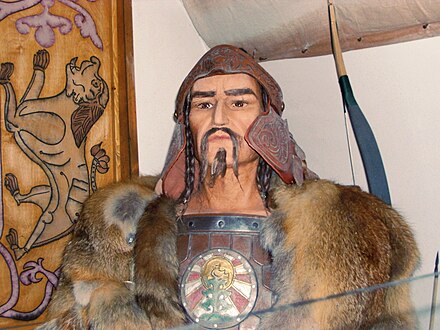



%2C_Maysan%2C_Iraq_-_Mar_17%2C_2019_09.jpg/1280px-Mandaeans_celebrating_the_Creation_Day_(Brunaya)%2C_Maysan%2C_Iraq_-_Mar_17%2C_2019_09.jpg)



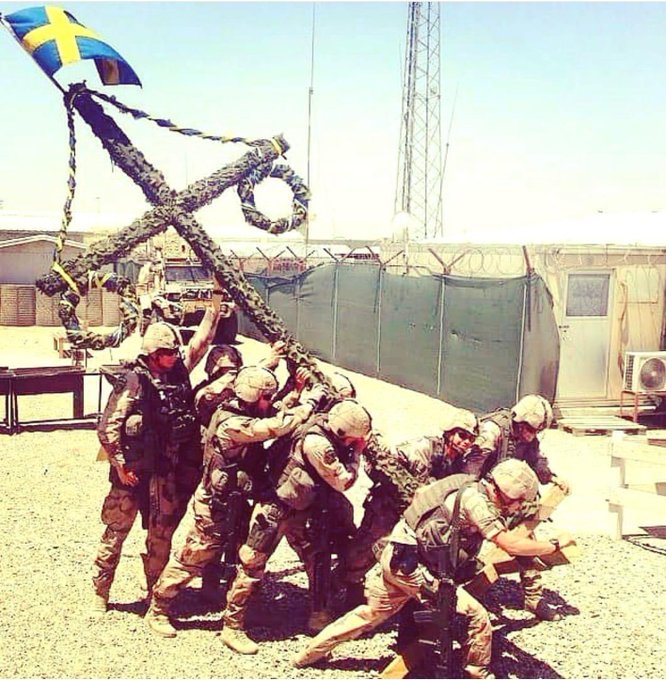

.jpg/440px-Jesaja_(Michelangelo).jpg)



